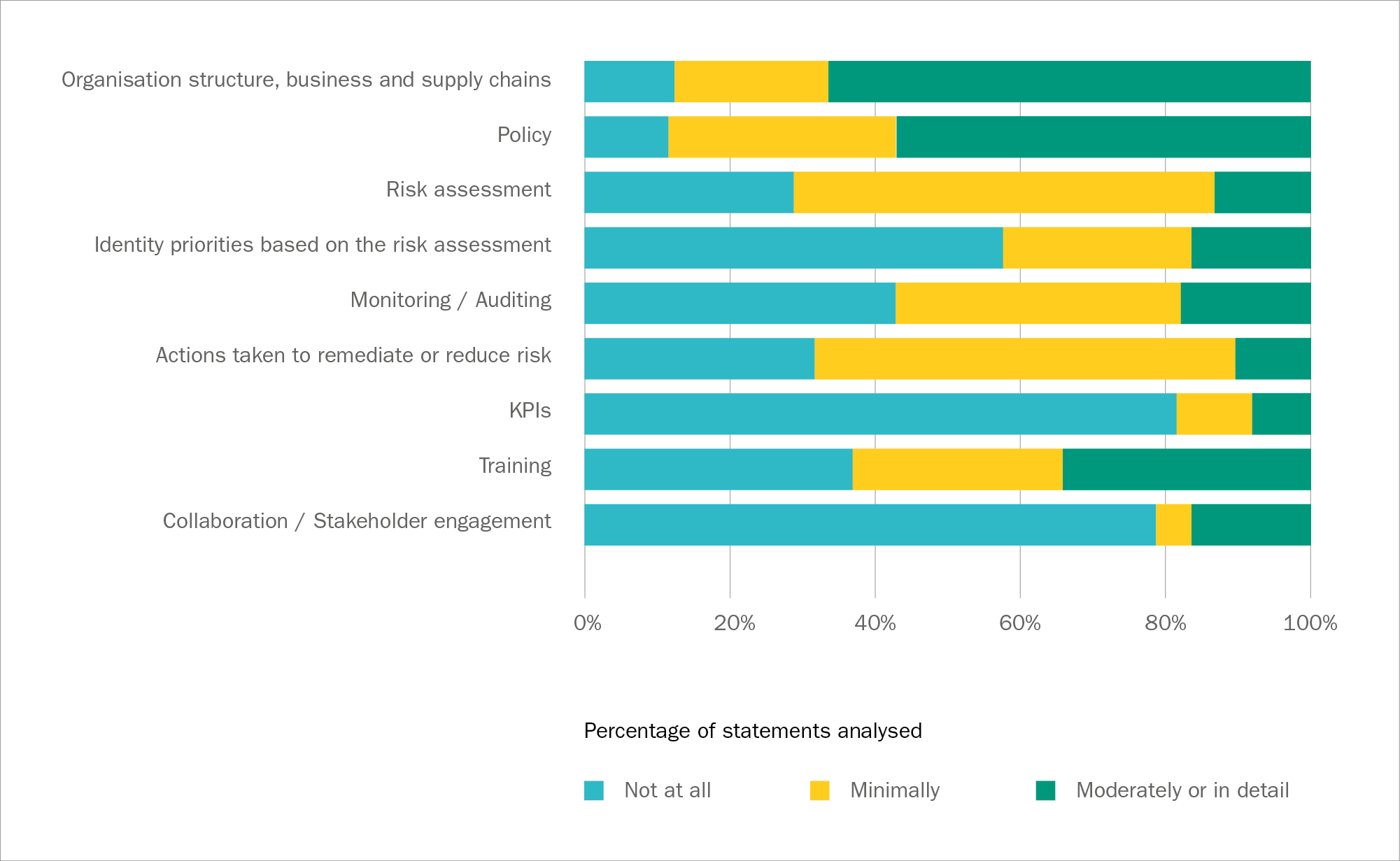Is modern slavery reporting working?
Posted by Stuart Bell

It’s now just over a year since companies doing business in the UK had to start making public statements on their efforts to identify and combat modern slavery in their own operations and supply chains under section 54 of the UK’s Modern Slavery Act 2015 (MSA). This reporting duty was widely welcomed as an important and innovative response to emerging evidence of forced labour and human trafficking in many parts of the world. What’s more, it was one of the first pieces of legislation to promote human rights due diligence in line with the UN Guiding Principles on Business and Human Rights (UNGPs). So, a year down the line, what are companies saying and how useful are these reports?
In a new report Ergon has assessed a sample of 150 modern slavery statements published throughout March 2017 using our specific benchmarking criteria and compared them to our previous analysis of modern slavery reports from early adopters a year ago. This new analysis therefore provides a snapshot of the current state of modern slavery reporting and a measure of how reports have developed.
The good news is that that companies are describing their structure, operations, supply chains and modern slavery policies in more detail, as well as highlighting staff training on modern slavery and human rights more frequently. Statements are generally longer and slightly more thorough. The highest scoring reports, based on the Ergon benchmark, are coming from consumer-facing globalised corporations with complex supply chains, and some of these larger companies are also expecting modern slavery statements from all their suppliers, irrespective of their size, so the Act is having a ripple effect through B2B relations.
Broad, but not deep
However, the main take-away from our new analysis is that there is still a long way to go in terms of reporting in depth about due diligence processes – which is the core reporting obligation under the MSA and a key indicator or how one of the key concepts of the UNGPs are starting tobe understood and implemented. Superficial and broad descriptions of processes and actions remain the norm for the bulk of reporters.
For example, while many companies refer to the fact that they assess risks in their operations and supply chains, they rarely explain their risk assessment process in detail or disclose the outcomes in terms of where their modern slavery risk lie – the specific countries, products, supply chain tiers or business areas at risk.
Interestingly, some companies report that they expect no risk of modern slavery because their suppliers are UK or EU-based. As recent criminal convictions under the other provisions of the MSA show, the assumption that modern slavery risks are to be found only in global supply chains is complacent – any UK firm using outsourced service contractors (cleaners, caterers, warehousing), for example, may be exposed to hidden risks.
Contractors overlooked
In fact, such contractor relationships are extremely poorly covered in modern slavery statements – a surprising 84% of our sample have little or nothing to say about how or whether they have considered risk among their contractors. This represents a significant oversight.
It is also notable that companies remain most comfortable stating their commitments and policies on forced labour and have least to say about practical actions taken to remediate or reduce modern slavery risk. Where companies do mention some steps, these are mainly restricted to the adoption of Codes of Conduct. Changes in operational practices or in business relationships designed to minimise modern slavery risks are rarely cited.
So while it is encouraging to see some overall progress, over the past year, there has been very little movement towards greater depth in reporting on the key elements of due diligence – risk assessment, prioritisation and remedial and preventative action.
Our findings echo the views of the UK’s Anti-Slavery Commissioner, Kevin Hyland, who has recently written to company chief executives expressing disappointment with the quality of statements which he branded as generally ‘weak’.
As an organisation that works to support leading companies on their modern slavery strategies, we understand why many are disinclined to draw attention to a major human rights issue in their sphere of operations and prefer to report in generalities. However, without progress in the quality and scope of reporting it is likely that calls for mandatory scrutiny of reports and mandatory human rights due diligence will become louder. In order to meet political, civil society and investor expectations, and to demonstrate responsible leadership, companies would be well advised to think more broadly about the risks that exist throughout their business relationships, to be transparent about them and of course to take effective action.
